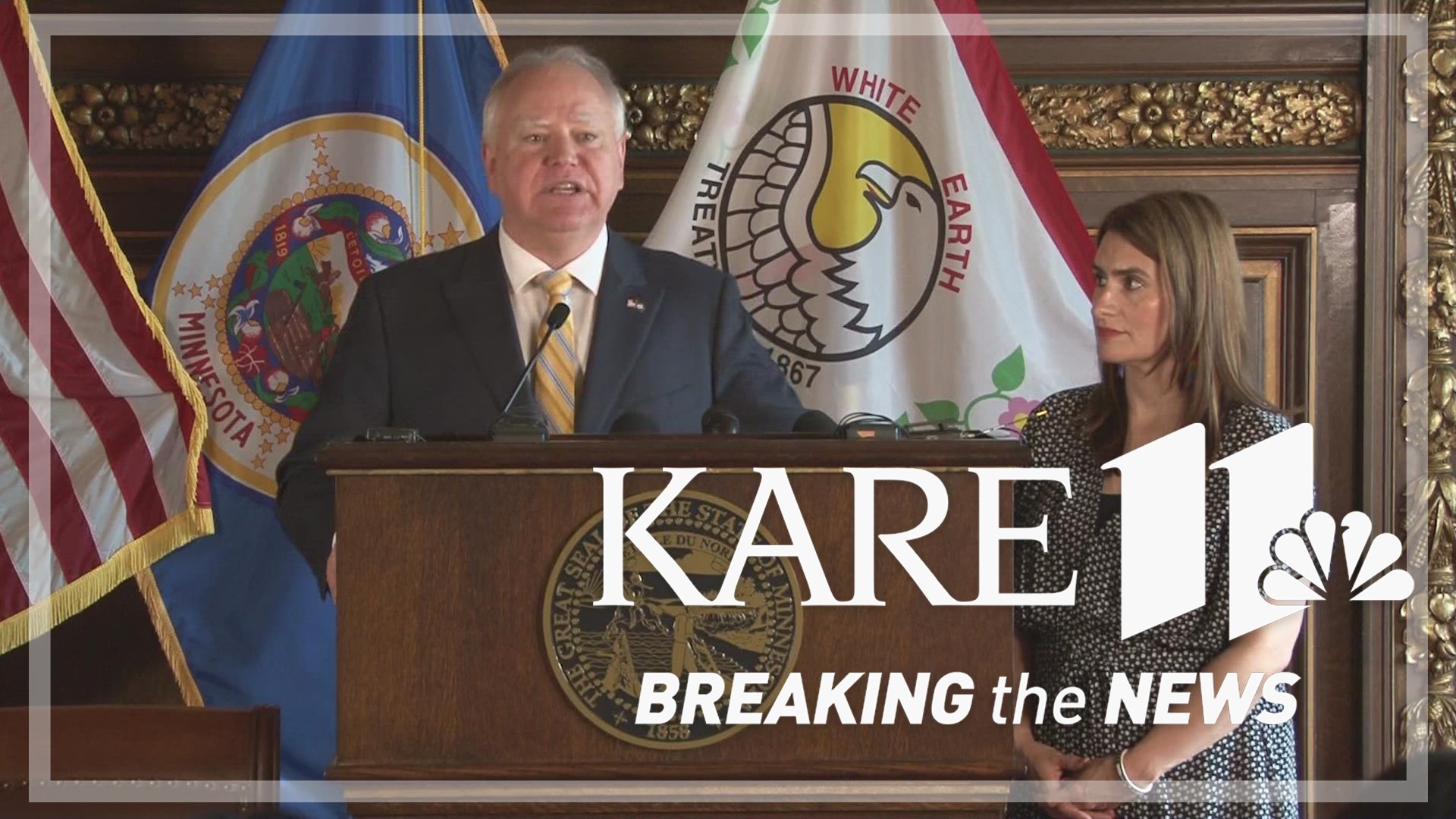ST PAUL, Minn. — Governor Tim Walz will double down on his idea of returning part of the state's record budget surplus to the people. He's expected to call for even bigger checks for Minnesota families.
The governor is expected to make a direct appeal to taxpayers because he has been unable so far to win over state lawmakers with the idea of one-time payments to families.
He told WCCO Sunday that now that negotiations over other spending bills have broken down, he'd like to return half of the state's projected $9 billion surplus directly to the people.
He said that would be enough to give each joint tax filer a $2,000 check and each single filer a $1,000 check.
"Let's give half of it back. It would be a 15-minute special session. My revenue department is prepared and ready to do it. $2,000 a family."
Walz later tweeted a link to the interview. And his staff confirmed that it's a serious proposal.
But, by tradition, governors don't call special sessions until there's an agreement in advance on the content of the legislation and the length of the session. So, Walz isn't expected to call a special session until there's buy-in from leaders of the GOP-controlled Senate and the DFL-controlled House.
Senate Republicans have consistently written off the rebate checks idea as a one-time election year gimmick that won't help people as much as the Senate's tax relief plan, namely permanent cuts to income tax rates.
House DFL leaders preferred targeted tax credits that would make an impact with families facing high expenses for childcare, health care and paying their local property taxes.
House Speaker Melissa Hortman said she couldn't commit to the governor's latest proposal until running it past the House DFL Caucus. She was inclined to believe they would like the proposal, with all of the other bills off the table now.
However, the governor's idea of a 15-minute special session probably wouldn't fly, due to the House's rules for handling new legislation.
Lawmakers have to vote to suspend House rules in order to vote on a bill the same day it's introduced. That requires 90 votes, so Republicans would have to agree too. Otherwise, the House could take up the bill on the second day of a special session and Democrats could pass it with a simple majority vote.
The governor is relying on Minnesotans to put pressure on skeptical lawmakers, which may be a heavy lift in the middle of a Minnesota summer.
"June, July or August I doubt many people are really paying attention to the political dialogue. Election season doesn't start up again until the State Fair," political analyst David Schultz of Hamline University told KARE.
"I don't know how much of this right now really resonates with the public in terms of listening to what each side is saying."
Schultz acknowledged, however, that incumbent Democrats are under a lot of pressure to show they're trying to ease the burden of historic increases in consumer prices.
"I think he's going to keep pushing that, hoping it becomes a diversionary tactic, changing the political dialogue."
House and Senate leaders reached an impasse last week over what bills would be included in a summer special session, to wrap up work left undone when time ran out on the 2022 regular session.
Work unfinished
When the regular session ended, many important spending bills were still stuck in conference committees, where House and Senate members were trying to craft compromise versions of bills that could be passed out of both chambers. They included:
- Tax Relief (tax cuts, credits, rebates)
- E-12 Education (special education cross subsidy)
- Nursing Homes
- State Government
- Transportation
- Public Safety
- Federal Match (local match for federal infrastructure money)
- Bonding bill for public works construction
- Housing and Agriculture bill
Work done
When the session ended the governor had signed several high-profile pieces of legislation into to law, including:
- Veterans
- Drought relief
- Unemployment Insurance Trust Fund
- Foster children's ombudsman
- Russia divestment
- ALS research
- Frontline workers
- Mental health, including the competency gap
- Hometown Heroes bill
- Opioid Lawsuit money distribution
- Re-insurance to lower health insurance premiums
- Growlers

